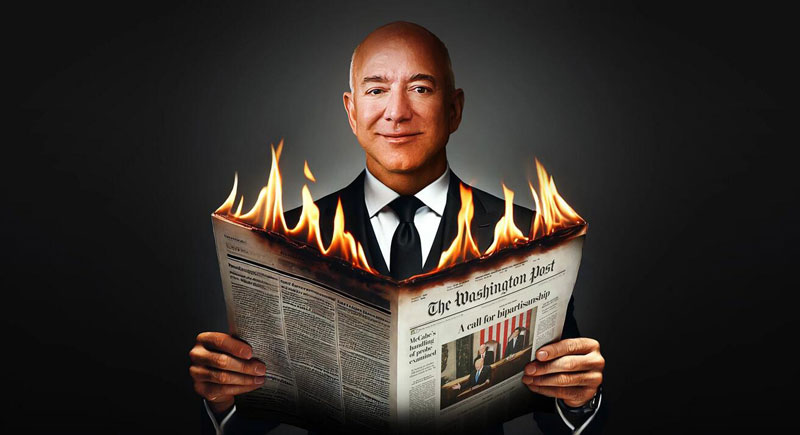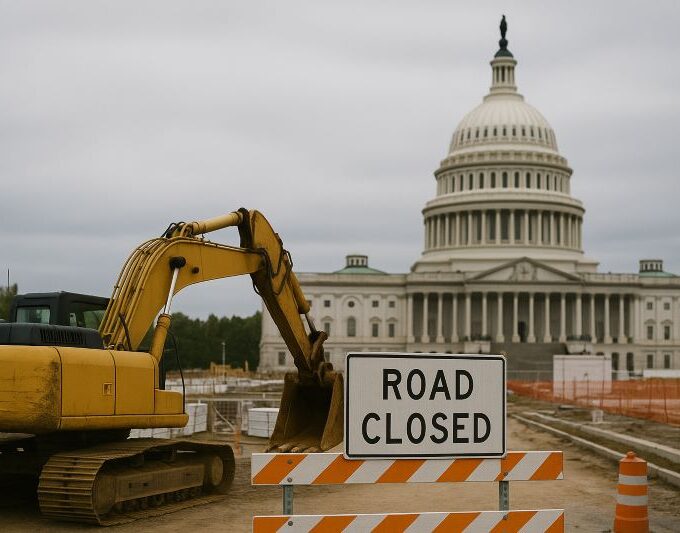On the eve of the US election, the Washington Post took the unprecedented step of announcing that it was no longer “endorsing” a presidential candidate and retracted an editorial supporting Harris. The Post’s decision to remain “neutral” shocked public opinion and sparked a broader discussion about the role of the media in shaping democratic discourse. National Public Radio (NPR) reported on the 28th that the newspaper lost 200,000 paying subscribers and several former leading writers resigned. Amazon founder Jeff Bezos, who owns the paper, has been a target of criticism.
In response, William Lewis, publisher and CEO of the Washington Post, explained that the paper’s decision was simply a return to its roots; after all, it had been labeled “independent media” for years. Few at the paper believed that.
In the wake of the incident, the Washington Post editorial board was righteously outraged.13 columnists wrote a joint letter calling the decision a “terrible mistake.” Critics are understood to believe that Bezos made the move to protect his business interests and fear “retaliation” if Trump is re-elected. Bezos said that the media’s endorsement of presidential candidates will not have a substantial impact on voters’ decisions, but it can easily lead to a sense of bias and even make readers doubt the independence of the media. He argued that the choice not to endorse any candidate was based on the principle of independence of the journalism industry, and saw it as the “right decision”.
As election campaigns heat up, newsrooms are usually buzzing with exclusive interviews, investigative reports, and political endorsements. However, The Washington Post has opted for a different approach this year by declaring neutrality, stating that it will refrain from endorsements, investigative angles biased toward any candidate, or opinion pieces that could be perceived as supporting a particular political stance. This decision has surprised political analysts and readers alike, marking a rare deviation from traditional media practices.

The Role of Media in Politics
The decision underscores an ongoing debate about the role of media in democratic societies, where many believe that journalism should either support transparency by holding power accountable or maintain a nonpartisan stance to avoid influencing voters. Media outlets have historically played dual roles, both informing the public and, at times, influencing public opinion through endorsements. By stepping back, The Washington Post is perhaps responding to increasing concerns over bias and misinformation.
Public Reaction and the Growing Divide
While some readers and political commentators support this neutral stance, arguing that it may restore public trust and reduce polarization, others argue that by staying silent, media outlets risk failing to scrutinize critical issues during election periods. As a result, reactions to The Washington Post’s announcement have been mixed. Some view it as a needed pause from partisan media discourse, while others see it as a missed opportunity to support truth and accountability.
What Neutrality Means for Election Coverage
Moving forward, The Washington Post plans to focus on providing balanced, fact-based reporting on all candidates without editorializing or issuing opinion-based endorsements. This approach may pave the way for other newsrooms to consider similar stances, especially given growing public criticism of media influence on political discourse. For journalists, however, achieving true neutrality while still informing the public on urgent matters will remain a delicate balancing act.
In a year marked by contentious issues, The Washington Post’s decision could ultimately signal a shift in how major media outlets handle elections, or it might remain a unique response to an increasingly divided media landscape. Analysts believe that this series of initiatives is more like the media “to protect themselves” means of risk avoidance. Whatever the outcome, readers are likely to keep a close eye on whether this neutrality changes public perception of media integrity.












